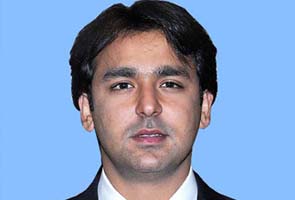Washington/Seoul, Apr 26: A special train possibly belonging to North Korean leader Kim Jong Un was spotted this week at a resort town in the country, according to satellite images reviewed by a Washington-based North Korea monitoring project, amid conflicting reports about Mr. Kim's health and whereabouts.
The monitoring project, 38 North, said in its report on Saturday that the train was parked at the “leadership station” in Wonsan on April 21 and April 23. The station is reserved for the use of the Kim family, it said.
Though the group said it was probably Kim Jong Un's train, Reuters has not been able to confirm that independently, or whether he was in Wonsan.
“The train's presence does not prove the whereabouts of the North Korean leader or indicate anything about his health but it does lend weight to reports that Kim is staying at an elite area on the country's eastern coast,” the report said.
Speculation about Mr. Kim's health first arose due to his absence from the anniversary of the birthday of North Korea's founding father and Mr. Kim's grandfather, Kim Il Sung, on April 15.
North Korea's state media last reported on Mr. Kim's whereabouts when he presided over a meeting on April 11.
China has dispatched a team to North Korea including medical experts to advise on Kim Jong Un, according to three people familiar with the situation.
A third-generation hereditary leader who came to power after his father's death in 2011, Kim has no clear successor in a nuclear-armed country, which could present major international risk.
On Thursday, U.S. President Donald Trump downplayed reports that Mr. Kim was ill. “I think the report was incorrect,” Mr. Trump told reporters, but he declined to say if he had been in touch with North Korean officials.
Mr. Trump has met Mr. Kim three times in an attempt to persuade him to give up a nuclear weapons program that threatens the United States as well as its Asian neighbors. While talks have stalled, Mr. Trump has continued to hail Mr. Kim as a friend.
Reporting from inside North Korea is notoriously difficult because of tight controls on information.
A Trump administration official said continuing days of North Korean media silence on Mr. Kim's whereabouts had heightened concerns about his condition, and that information remained scant from a country U.S. intelligence has long regarded as a ”black box.”
The U.S. State Department did not immediately respond to questions about the situation on Saturday.
Daily NK, a Seoul-based website that reports on North Korea, cited one unnamed source in North Korea on Monday as saying that Kim had undergone medical treatment in the resort county of Hyangsan north of the capital Pyongyang.
It said that Mr. Kim was recovering after undergoing a cardiovascular procedure on April 12.
Since then, multiple South Korean media reports have cited unnamed sources this week saying that Mr. Kim might be staying in the Wonsan area.
On Friday, local news agency Newsis cited South Korean intelligence sources as reporting that a special train for Mr. Kim's use had been seen in Wonsan, while Mr. Kim's private plane remained in Pyongyang.
Newsis reported Mr. Kim may be sheltering from COVID-19, the respiratory disease caused by the novel coronavirus.
Mr. Kim, believed to be 36, has disappeared from coverage in North Korean state media before. In 2014, he vanished for more than a month and North Korean state TV later showed him walking with a limp.
Speculation about his health has been fanned by his heavy smoking, apparent weight gain since taking power and family history of cardiovascular problems.






Comments
Add new comment